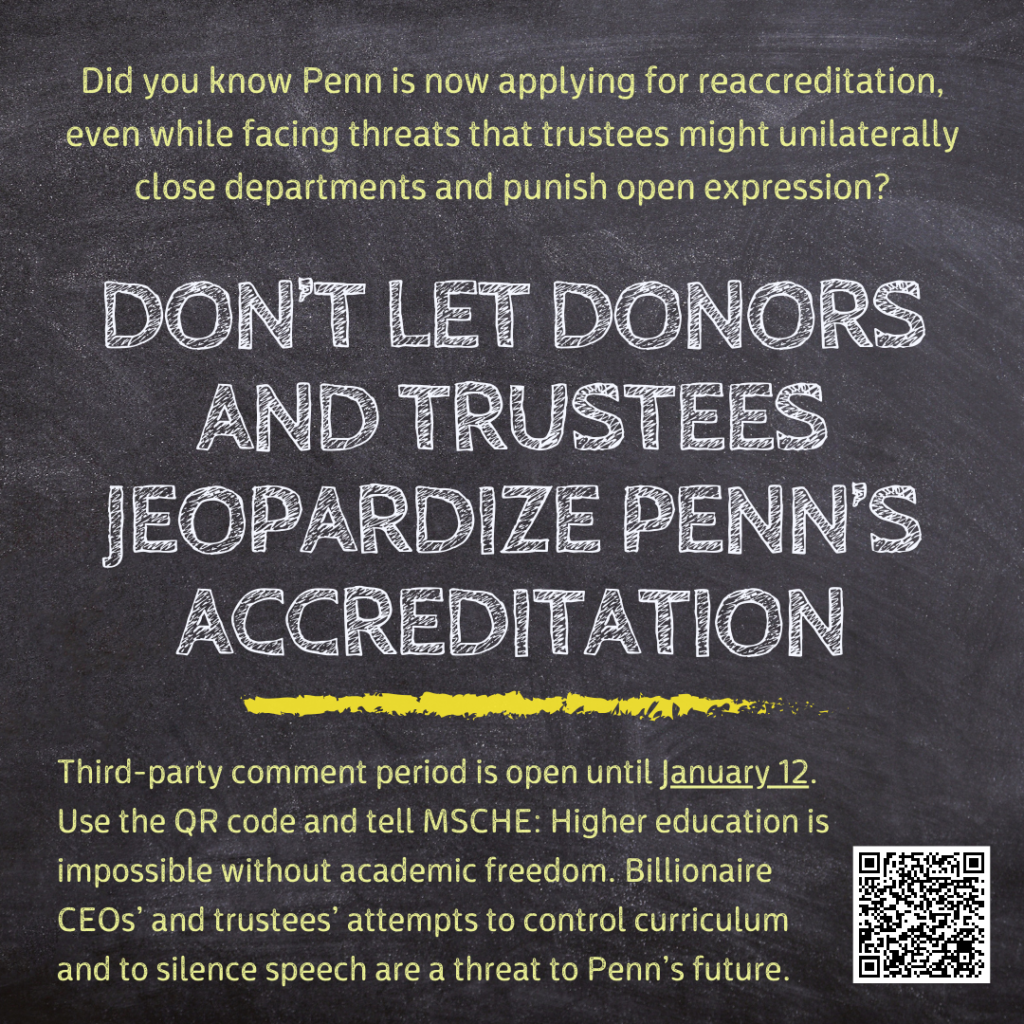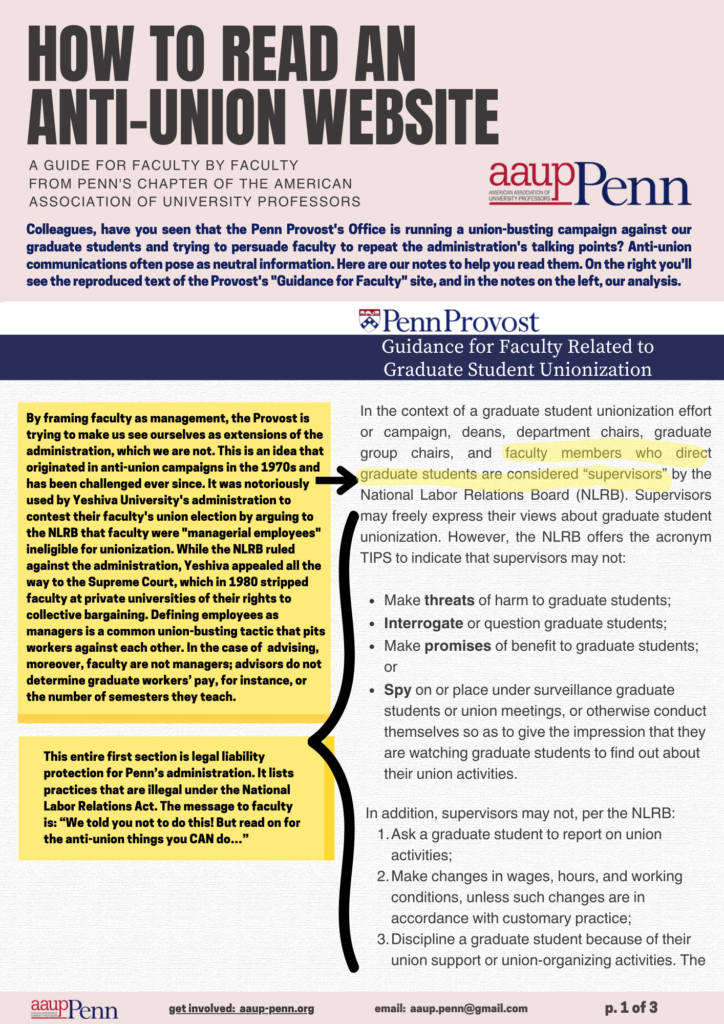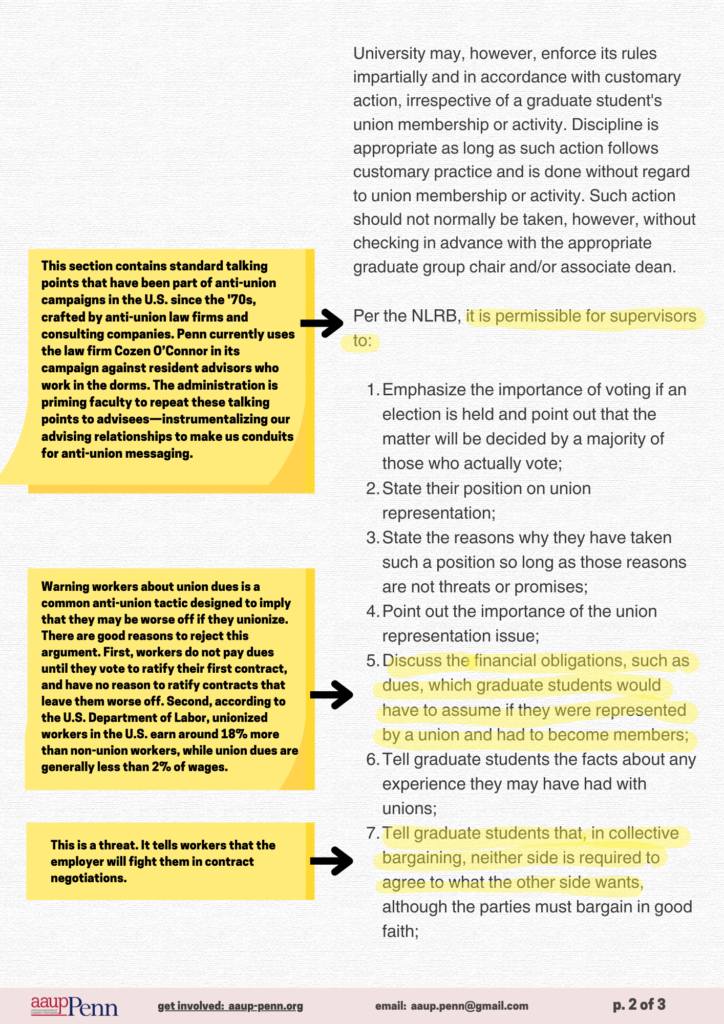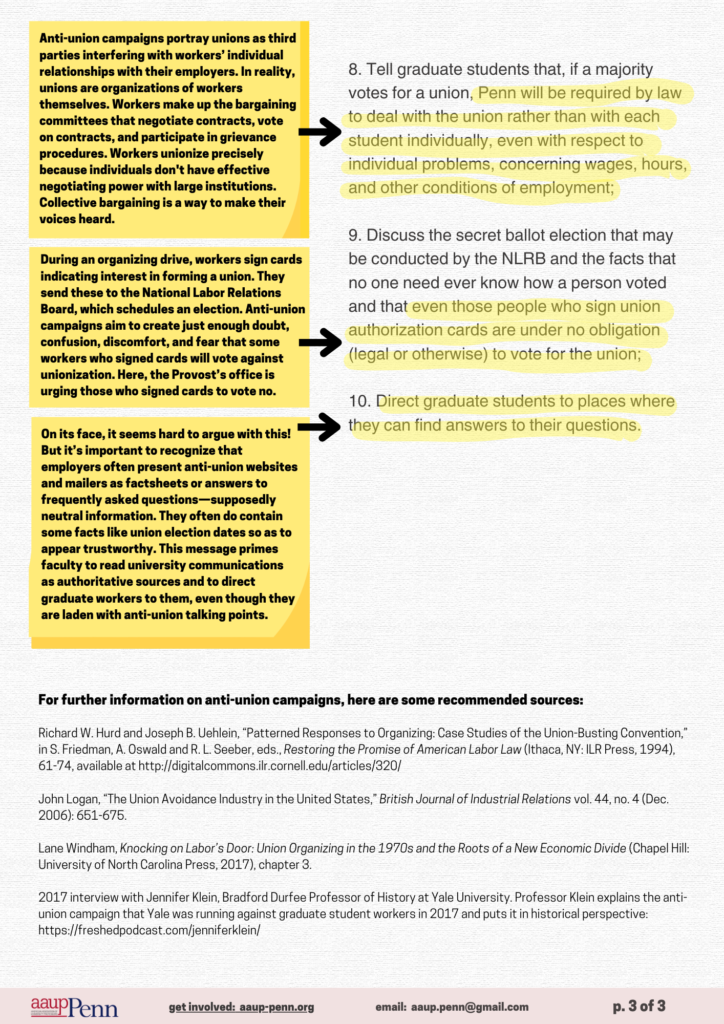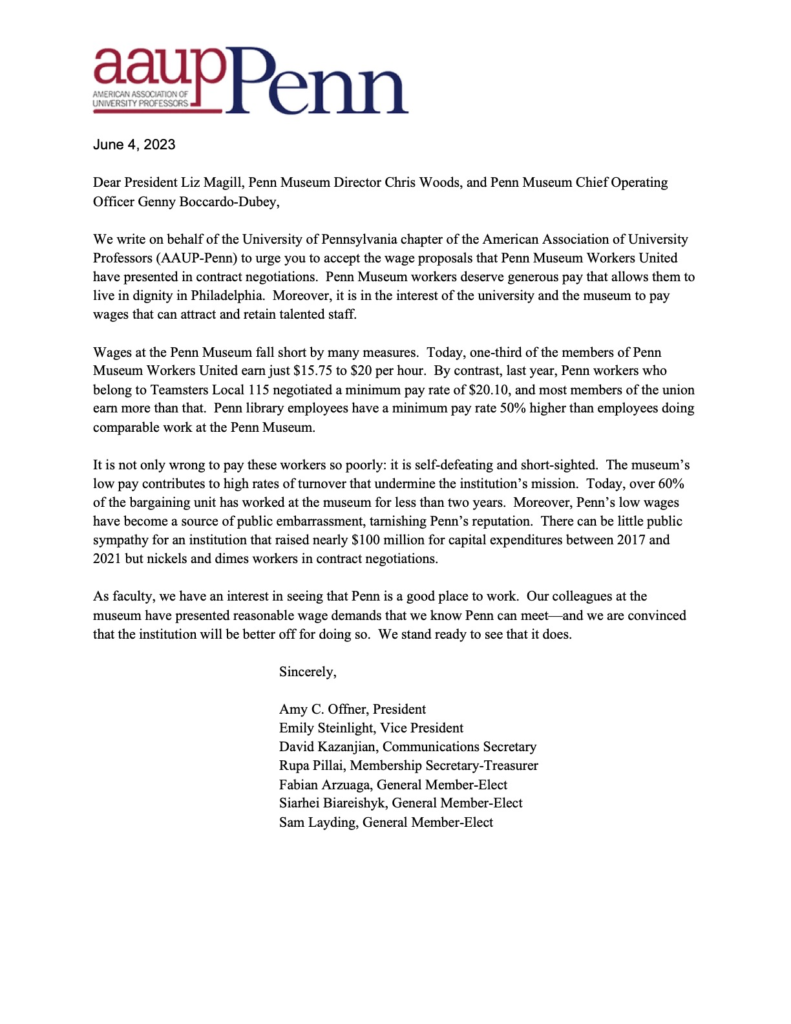
December 6, 2023
Dear Members,
In recent weeks, the AAUP-Penn Executive Committee has called on President Liz Magill to publicly condemn the targeted harassment of faculty members who have been subject to defamation and threats of personal violence for participating in the Palestine Writes Literature Festival and for expressing support for Palestinian civilians. Campaigns of targeted harassment threaten core rights protected by academic freedom, including the rights of faculty to make academic decisions within their areas of expertise and to speak publicly on issues of general concern. It is a fundamental duty of university administrators to condemn such attacks on academic freedom.
At yesterday’s Congressional hearings, some lawmakers contributed to the targeted harassment of faculty and subjected President Liz Magill to a line of questioning that revealed their contempt for academic freedom and for truth itself. Unfortunately, in the face of their questions, President Magill failed once again to fulfill her responsibility to condemn targeted harassment. During the hearing, Republican Congressmen Joe Wilson (R-SC) and Jim Banks (R-IN) breathed new life into a months-old campaign of targeted harassment by making false and inflammatory claims about individual Penn faculty members’ political views, affiliations, and activities. They called on the University to commit flagrant violations of academic freedom: they suggested that Penn fire faculty members for protected extramural speech and challenged one faculty member’s right to teach classes and make curricular decisions within their area of scholarly expertise. These were threats to the academic freedom of Penn faculty members made by members of Congress, broadcast live to international audiences and covered in major media outlets. Such threats imperil the right of all faculty members to full freedom in research, teaching, and extramural speech. At a time when the individual faculty members named by Congressmen Wilson and Banks have faced months of threats to their personal safety, often fueled by viral online misinformation, these comments also increase the serious risk of violence against members of our community.
President Magill failed to respond to these instances of targeted harassment that unfolded before her eyes. While she was denied adequate time to respond, and while her testimony paid lip service to academic freedom, she did not challenge the Congressmen’s misleading claims about Penn faculty members. Nor did she challenge the legitimacy of the organized campaign of targeted harassment that has circulated these claims online and in the media for months.
Elsewhere in her testimony, President Magill accurately acknowledged “rising harassment, intimidation, doxing, and threats toward students, faculty, and staff based on their identity or perceived identity as Muslim, Palestinian, or Arab.” But she gave the inaccurate impression that the University has already taken effective action to address the problem of targeted harassment: “We are investigating all allegations, even when threats have come from outside our campus. We are providing resources and advice to assist individuals with online doxing, harassment, and threats. Safety and security for individuals and places of worship has been increased across the board, and we are deploying all necessary resources to support any member of our community who is the target of hate.”
In fact, as AAUP-Penn has documented, university policies have exhibited a pattern of discrimination against faculty and students—including Jewish members of our community—who have articulated criticisms of Israeli government policies or of the current war. While offering free, enhanced security to some Jewish institutions, faculty, and students on campus, the university administration has failed to defend the safety and academic freedom of faculty and students who have voiced concern for Palestinian civilians. These include Palestinian, Arab, and Muslim members of our community, Jewish students in Penn Chavurah, and faculty from other religious, national, and ethnic backgrounds.
As yesterday’s hearing made clear, the same groups outside the University that are threatening faculty members are attacking President Magill. For the sake of the academic mission of our university, and for her own sake, she must refute their claims rather than accept their dangerous misrepresentations. As the AAUP has explained, the attempts we are seeing at Penn and in Congress to conflate all research and teaching about Palestine and all criticism of Israeli government policies and warfare with antisemitism represent a direct threat to academic freedom. They are designed not to fight antisemitism—a real and grave problem—but to suppress research and teaching on the histories, politics, and cultures of Israel and Palestine. These are not only legitimate areas of scholarly inquiry; they are precisely the kinds of areas where searching, critical, and rigorous scholarly inquiry is needed to serve the public good in a democratic society.
President Magill has spent the last several months fruitlessly attempting to placate donors, trustees, members of Congress, and lobbying organizations that neither understand nor respect the principles of academic freedom—principles that the AAUP set out a century ago to safeguard the academic mission of the university. President Magill has recapitulated their dangerous conflations of antisemitism with an overly broad range of academic programming and political speech and has tolerated and even contributed to the targeted harassment of faculty. In doing so, she has not protected herself from criticism, but has emboldened attacks on faculty members, on academic freedom, and on the basic academic functioning of the University of Pennsylvania. Yesterday’s Congressional hearing provided the clearest evidence yet that President Magill has committed a grave error in casting her lot with those who have threatened and humiliated her in order to instrumentalize her in a campaign against scholarship and teaching. It is past time for the president of our university to stand up to these attacks by supporting in word and deed Penn’s faculty, the principles of academic freedom, and the fundamental scholarly mission of the university.
— AAUP-Penn Executive Committee






